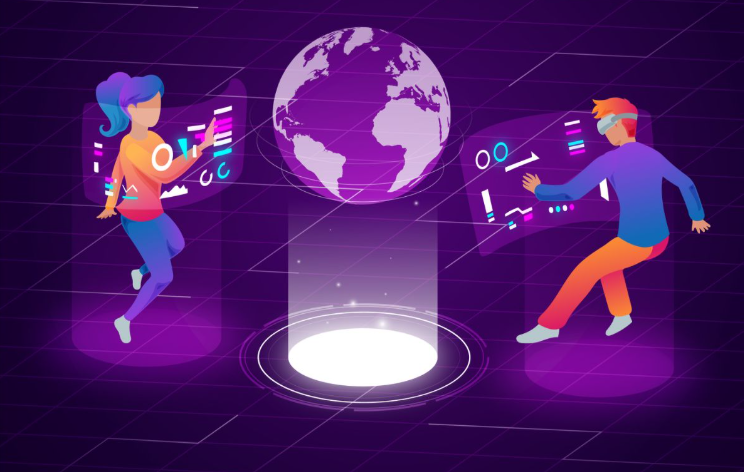I remember watching people going to gaming shops, dropping coins into arcade machines to play their favorite games. Technology keeps reshaping everything, and gaming is no different. It’s amazing how we’ve gone from tiny arcade pixels to entire cinematic worlds. But there’s one shift that rarely gets discussed. With AI, games are learning to speak to everyone, no matter the language.
With the help of Chinese translation services and advanced AI tools, developers are no longer just turning text into another language. They’re shaping stories that sound native, emotional, and familiar, regardless of who’s holding the controller.
How Translation Became Immersion
For developers, AI has turned translation into something deeper: true localization. That’s where gaming localization services have stepped up from being a technical task to a creative craft.
Imagine a game filled with local jokes and cultural details; translate it word-for-word, and the magic disappears. That’s where AI plays its significant role. It understands context and tailors lines to match local tone and style. What makes players laugh in one country might turn into a clever play on words in another, and the emotional tone still lands perfectly. This level of precision keeps players connected.
AI That Adapts While You Play
There’s something even cooler happening now: live localization. No more fixed translations. The game actually adjusts language as you play. Instead of relying on static text translations, games can now adjust language in real time. Imagine joining a multiplayer match where your teammate in France types in French, someone in Korea speaks Korean, and you still understand both instantly.
That’s possible because of AI-powered neural translation systems that go beyond simple word swaps. They interpret tone, sarcasm, and intention, making global teamwork smoother than ever.
AI also keeps everything consistent. From weapon names to quest titles, the terminology stays aligned across every region. It might sound minor, but anyone who’s spotted translation mismatches knows how they can ruin immersion. AI prevents that quietly, making the game feel unified.
When Technology Lifts Creativity
Many fear AI might steal the soul of storytelling, but it’s proving the opposite. AI doesn’t replace creative voices; it supports them. It handles the repetitive groundwork so writers and linguists can focus on emotion, timing, and character.
It might suggest a first draft, point out phrasing that sounds off, or analyze how audiences react to different dialogue tones. Then humans take over, fine-tuning everything until it feels just right.
That’s how teams at MarsTranslation work, combining AI speed with human understanding. The technology gets things moving faster, but the human touch gives the story warmth and texture.
The Marketing Edge Hidden in Language
Language doesn’t just tell stories; it sells them. Games that feel authentic in every language naturally build stronger emotional ties with players. AI makes that possible by studying how audiences respond to dialogue, character tone, and even the interface.
These insights tell developers what players actually want. Developers can see which storylines or missions players love most in different countries. Maybe players in Italy replay emotional arcs, while Japanese players lean toward humor-driven quests. That knowledge shapes future content and marketing.
A Two-Way Connection
Localization has become a two-way conversation between developers and fans. Instead of guessing what works, studios learn directly from player behavior and adapt.
AI is also making it easier for studios to listen. Many developers now use multilingual bots and smart translation systems to handle global player feedback. A gamer in Indonesia can report a glitch in Bahasa, and the support team in another country receives the same message in English within seconds.
That quick communication makes players feel heard. Players finally feel their voices matter. It’s this two-way trust that keeps gaming communities alive.
Giving Indie Creators a Global Voice
A few years back, only big studios could afford full-scale localization. Now, AI has made it possible for all. Small teams and indie developers can localize their games into multiple languages without massive budgets.
A studio in Poland can now prepare a release for the Brazilian market in days instead of months. With final editing by professionals like those at MarsTranslation, the result feels polished and natural. This shift is letting independent voices reach audiences far beyond their borders.
The Human Element Still Wins
Even as AI evolves, nothing can compete with humans in good storytelling. Machines can recognize tone, but they don’t feel emotion and humor, which come from lived experience. That’s why the best outcomes come from collaboration.
AI provides structure and precision, whereas translators bring empathy and understanding. Gamers can tell the difference. When a story feels personal, not robotic, it builds loyalty, and that’s something no algorithm can automate.
Conclusion
Games connect players across the world, and language no longer stands in the way. Companies like MarsTranslation blend smart tools with human expertise to create translations that sound real and capture the genuine emotion of the story.
When technology and creativity come together, games don’t just enter new markets; they connect with players.
